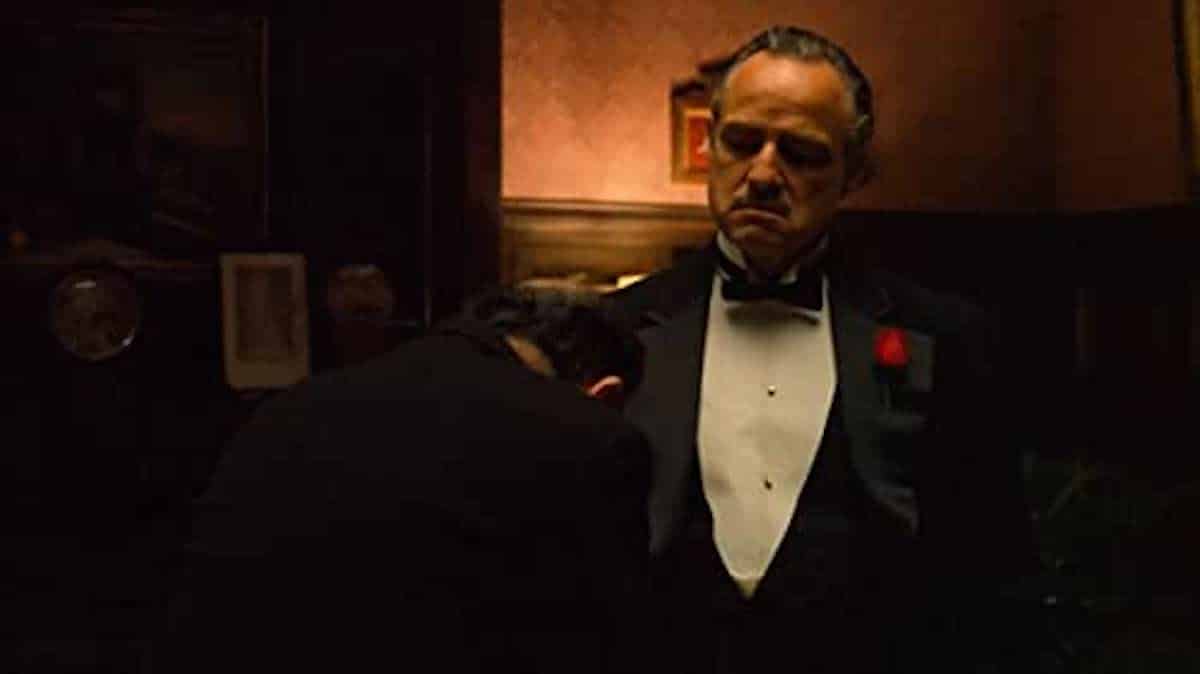1972 has become something of a touchstone year for America; the Dallas Cowboys won their first Super Bowl, the Pioneer 10 was launched and became the first man-made spacecraft to leave the solar system, the first Popeye’s opened in Louisiana, the Watergate Scandal would begin as five operates were arrested for breaking into the offices of the Democratic National Committee and American cinema was forever changed when The Godfather premiered on March 14, 1972. After 50 years, The Godfather has become the benchmark for how we measure American films and forever changed the genre of gangster films. It has left an immeasurable mark on cinema and culture so in honor of The Godfather’s 50th anniversary, let’s dive into its impact.
To be clear, this is not a critical analysis of the film as there has been a half century of analysis and I feel there is nothing else I can contribute to that but the cultural impact of The Godfather is still being quantified. Before the release of Francis Ford Coppola’s adaptation of Mario Puzo’s book, mobsters were portrayed as villains and while they still are in many films, they weren’t given the complex, psychological depth seen in characters like Vito, Michael, Sonny, Fredo and Connie.
This portrayal would become a core aspect in shows like Boardwalk Empire and The Sopranos with the latter—even the first scene in its very first episode opening—with a mob boss sitting in the waiting room of a therapist and if there’s anything to be gleaned from The Sopranos, it’s that Tony Soprano was an early pioneer in being open about one’s mental health struggles.
Even the term “Godfather” was an invention by author Mario Puzo but would eventually become intertwined with our real-world perception of mob bosses. While “Godfather” isn’t used as a moniker, names like “The Teflon Don” or “The Dapper Don”, “The Bull”, “Scarface”, “Joe Bananas”, “Bugsy”, “Ice Pick Willie” and “The Lord High Executioner” were all accepted and even feared nicknames for some of the most notorious mob bosses in history. While Vito Corelone preferred to work in the shadows, John Gotti, Salvatore Gravano and Raymond Patriarca sat in the driver’s seat and became infamous for their crimes.
The Godfather also explores territory previously unknown to audiences; that of the immigrant communities of the early 20th century. “Give your tired, your poor, your huddled masses, yearning to be free” is more than just the words inscribed on the Statue of Liberty. To the mass influx of immigrants, it represents the promise of America and to be able to make your own way, speak your own language, practice your own religion and simply be free was a promise many bought. However, immigrants from the same country or region tended to congregate in the same neighborhoods and would essentially become self-contained cities with their own grocers, tailers, shops and homes. From these immigrant communities came protection gangs and organized crime and while organized crime was not exclusive to the Italian community, The Godfather accidentally equated the two and made them inseparable for audiences.
While we are still quantifying the cultural impact of The Godfather, the film itself features some of the most iconic scenes in American cinematic history:
- The prologue of the wedding sets up the events of the entire film and is a masterclass of how to foreshadow character arcs
- The stories surrounding the horse head in Jack Woltz’s bed persist to this day
- Luca Brasi’s murder and subsequent “sleeps with the fishes” revelation is brutal and reminds audiences about the brutality of the mob life
- Michael’s decision to kill a police captain and a rival drug baron sets him down a dark path that plays out over the next 30 years. Side note, the use of train sounds to signal Michael’s decision to become a murderer is a brilliant example of using sound to build tension
- Sonny’s attack on Carlo has been parodied so many times that an entire book could probably be written about its uses. Sonny’s murder later in the film is yet another reminder of the brutality Coppola is trying to convey and the sadness that comes when a father realizes what this life has wrought on his family
- Finally, the murder of the heads of the other four families in New York as well as Moe Greene is executed perfectly as the Corleone family ascends to power
The dialogue is so pervasive in our culture that the odds are overwhelmingly good that you or someone you know uses the lines of “an offer you can’t refuse” or “leave the gun, take the cannoli” or “never take sides against the family”. I’m even looking at two pictures I purchased from Etsy of the first two lines as I’m writing this retrospective. It’s a testament to Coppola’s screenwriting abilities and The Godfather has been frequently citied as one of the best scripts ever written. For further context on the screenplay, please check out The Annotated Godfather: The Complete Screenplay by Jenny M. Jones as it is an enjoyable read and was a valuable resource in researching this retrospective. A link will be included at the conclusion of this piece if you are interested in purchasing this annotated screenplay.
The critical and financial impact of the film would catapult stars Al Pacino, James Caan, John Cazale, Robert Duvall, Talia Shire and Diane Keaton to mega-stardom. Marlon Brando was already a major star at this point in history but he was viewed as a loose cannon prior to his casting but took the role seriously and influenced generations of actors. His Oscar winning performance of Vito Corleone has become the standard for the portrayal of all mafia patriarchs. Francis Ford Coppola would leave an additional mark on film history by writing and directing The Godfather Part II and cement the series as one of the best of all time.
While we have the benefit of 50 years of enjoying and analyzing The Godfather, it’s possible we may never know the full impact of the film’s release. It certainly had a tumultuous journey from script to screen and its legacy goes beyond critical acclaim and accolades. It’s a film that influenced our culture, our speech and our actions that re-watching is an offer that is impossible to refuse.
You can purchase The Annotated Godfather on Amazon here.



